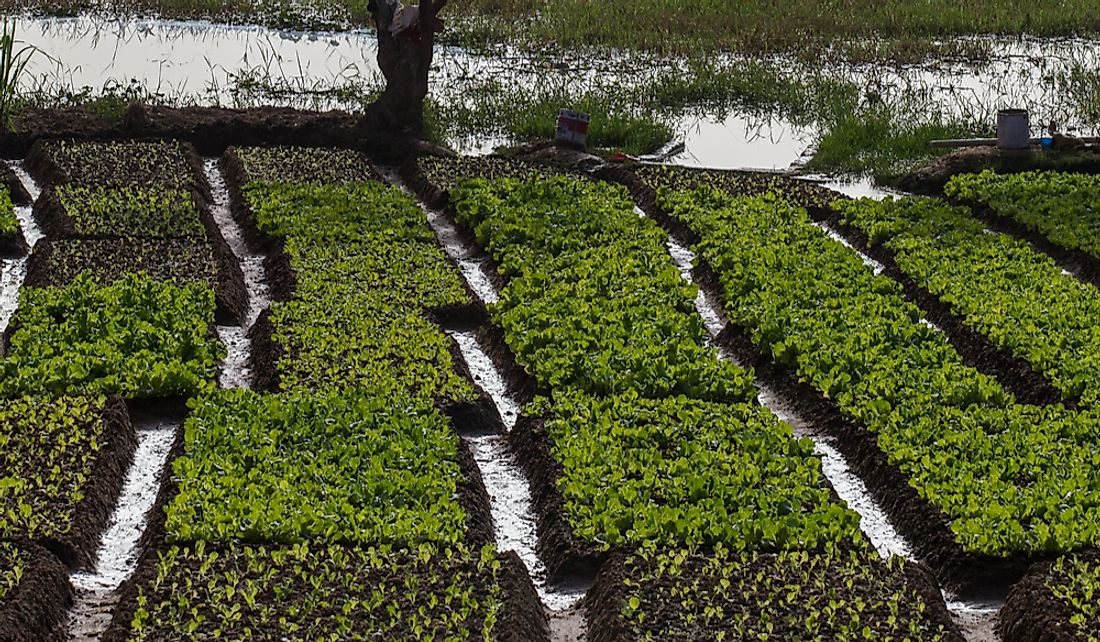What Are The Biggest Industries In Niger?

Niger is the largest country in West Africa occupying a land area of about 1.27 million km2. Over 80% of the country lies within the Sahara Desert. The vast arid area explains why the country has a low population of slightly over 23.2 million people. The Gross Domestic Product (GDP) of Niger is US$8.12 billion which represents 0.01% of the world’s economy. The three pillars upon which this economy is anchored are agriculture, which contributes about 43.4% of the GDP, followed by the service sector at 35%, and industries (including mining) which contribute 14.9% of the country’s GDP.
The Mining Sector
Niger, like most of the African countries, is endowed with natural resources. Some of the minerals mined in Niger include salt, hydrated sodium carbonates, limestone, iron ore, tin, molybdenum, gypsum, uranium, gold, and phosphates.
Uranium mining is the most significant mining process as it constitutes about 5% of the world’s uranium production. The pioneering of uranium mining in Niger can be traced back to the year 1957 when Uranium was first discovered at Azelik by a French company. The company was known as Bureau de Recherches Géologiques et Miniéres (BRGM). It had intended to discover copper when it came across the uranium. Commercial uranium mining officially commenced in 1971. By the end of the year 2017, the total cumulative production of uranium in Niger was 142,000 tons.
The Agricultural Sector
Agriculture constitutes the largest sector of Niger’s economy. It contributes over 40% of the gross domestic product (GDP) and has employed 87% of the total population. Agriculture in Niger is based on subsistence farming and breeding of livestock which acts as the main source of food and income. The main food crops grown in Niger are cassava, millet, peanuts, rice, maize, potatoes, sorghum, black-eyed peas, onions, and sugarcane.
The Integrated Production and Pest Management (IPPM) program in Niger partners with farming organizations, NGO’s, and government agencies to grow the agriculture industry. They work with small farming communities to improve farm yield and livelihoods through sustainable environmental practices. The main objective of the IPPM is to achieve food security amidst extreme climatic conditions. Most of the farmers depend on the rains such that dry spells lead to severe effects on agricultural production in the country. To tackle this challenge, the government, as well as the IPPM, are on the verge of training farmers strategies such as hydro-agriculture that promotes farming through land irrigation. Other strategies used to increase yield are the increase of productivity by incorporating phosphates, nitrogen-based fertilizers and manures, and the adoption of modern farming techniques.
Animal husbandry in Niger is majorly practiced by the private sector. The statistics obtained from the 2003 census revealed that Niger had 10.7 million cattle, 10.8 million sheep, 14.3 million goats, 1.7 million camels, 1.8 million donkeys, and 242,000 horses. As a result, the country enjoys a constant supply of chicken, milk, and meat that feed the growing populations.
The Service Industry
The service industry is directly under the ministry of trade. Some of the services offered in Niger include the hotels and restaurant services, tourism, and tour operator services, travel agencies, telecommunication, and postal services, transport, financial services (insurance, banking, microfinance, stock exchange), and the informal sector.
Challenges Faced by the Economy of Niger
The low GDP can be attributed to the fact that the country is landlocked and the large land area found within the Sahara Desert which limits the agricultural land for cultivation. Besides, there’s a lack of access to educational systems by the majority of the population which has resulted in a reduced skilled labor force. Another challenge to the economy of Niger is the poor transport systems as only 8% of the 6,800 km stretch of roads has been tarmacked.











